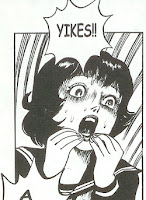
While doing submission research this afternoon, I stumbled upon the freshly written blog post
Agentaversary, just three days old, by literary agent
Kelly Van Sant of the
D4EO Literary Agency. Kelly has just finished her first year working as an agent.
Though I have
traditionally published eight books, I have never had an agent. In fact, I may not have even met one in the flesh until three or four years ago. But once I decided that I should consider going the agent route, I started reading up on these people. I read agent blog posts like Kelly's. I read agent interviews. I read comments about agents at sites where that kind of thing goes on. And every now and then, I read the
Latest Deals section of Publishers Marketplace. Yes, you're right. This is like stalking.
What I Have Learned About Agents While Stalking Them
What I've noticed, particularly from that
PM Latest Deals page, is that a lot of agents make very few sales over the course of twelve months. I've seen many agents listed there who have sold four or fewer books to publishing houses in the last year. Agents get just a percentage of what their authors are paid, whether we're talking advance or sales. While there's always talk of
million dollar advances, my understanding is that is very rare when you consider how many books are published.
Ask the Agent: What Does an Average First Book Pay? by
Chip MacGregor gives an advance estimate of $5,000 to $15,000, which is the kind of numbers I've heard about. Certainly for children's books.
So an agent gets around 15 percent of that. However, the author doesn't get that advance all at once. It used to be half on signing, half on turning in a ready-to-publish manuscript. Now it's usually a third on signing, a third on turning in a ready-to-publish manuscript, a third on publication. So agents involved in sales like that are presumably getting their commission in thirds, also.
Do the math, 'cause I'm not going to. But 15 percent of those kinds of numbers isn't going to generate a big annual income. My theory is that some of these agents must be getting income from sales of books that they sold to publishers for authors a couple of years ago in addition to this year's sales.
The really lucky authors represent someone like Rick Riordan or Meg Cabot whose work keeps on selling.
Now Go Back And Read Kelly Van Sant's Blog Post
In case you skipped following my original link to Kelly's post, and I'm sure at least some of you did, go back and read about the kind of work she did this past year. "I don't think most people," she says, "--writers and agent-hopefuls alike--have any
idea how much work it takes before agenting becomes financially
sustainable."
The same could be said for how much writers do, of course. A lot of what Kelly says sounds very familiar. Including the part about financial sustainability. Personally, I don't know what financial sustainability means. It sounds good, though, doesn't it?
Intellectually, I know I should find
Agentaversary discouraging. So many pre-published writers think finding an agent is a golden ticket. Knowing agents struggle like the rest of us is going to make a lot of new scribblers unhappy.
Emotionally, though, I feel Hey, I've got the inside scoop! I know what goes on! And, sure, it's not good news for me, but knowledge is power. Right? Right? Am I right?

 Oh, wow, February. The Connecticut children's book world must be assuming that everyone is going to be doing the hygge-thing and staying at home to read.
Oh, wow, February. The Connecticut children's book world must be assuming that everyone is going to be doing the hygge-thing and staying at home to read. Fri., Feb. 9, Kim Purcell, R. J. Julia Booksellers, Madison 7:00 PM
Fri., Feb. 9, Kim Purcell, R. J. Julia Booksellers, Madison 7:00 PM






















